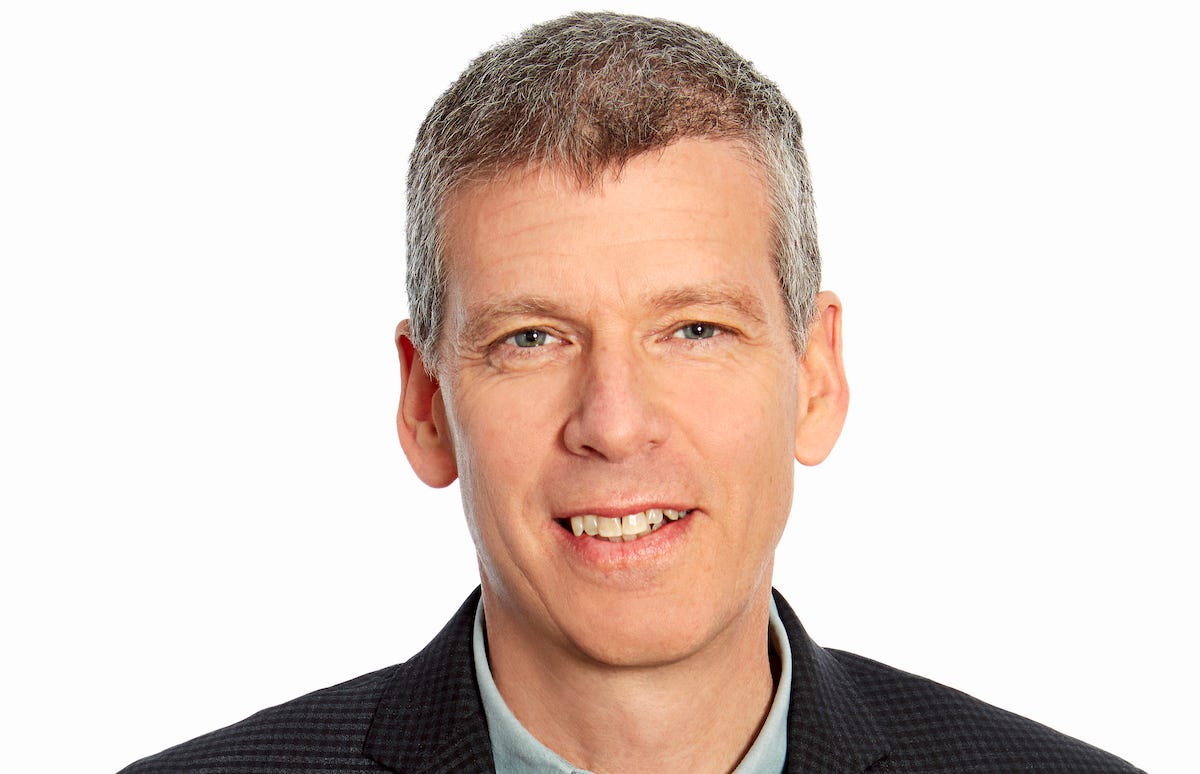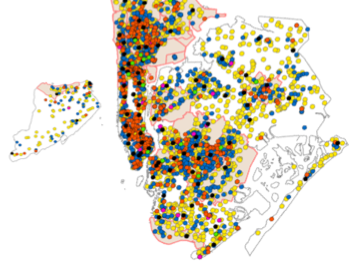Gary Belkin, a psychiatrist and former Deputy Health Commissioner for New York City, has spent his career exploring how mental health systems can help tackle social challenges. In particular, Belkin’s work has demonstrated the potential for scaling mental health interventions through “task sharing” – or equipping and empowering non-experts like teachers, pastors, and other community members with the skills and tools needed to address mental health challenges.
After overseeing mental health care across New York City’s public hospital system, Belkin was appointed Deputy Health Commissioner for the city in 2014 and led the development of ThriveNYC, an initiative to integrate mental health approaches into sectors like education, housing, and employment services until its cancellation in 2019 amid political resistance. Since then, Belkin founded and directs the Billion Minds Institute, an effort to apply the evidence around psychological resilience and social cohesion to the urgent challenge of climate change adaptation.
In a recent interview, Belkin spoke about his experience with these approaches, the role of psychological agency, and his vision for the future of mental health systems.

What drew you to psychiatry and how did you come to view mental health systems as critical for addressing global challenges?
I always associated being a doctor with being involved in addressing the world’s problems, and in medical school I became interested in public health: what can medical knowledge and tools do at the societal scale? Psychiatry, however, had gotten far removed from these social aspects. Individual care is important; but how do we deal with the psychological trauma of 100,000 people? That’s a different conversation.
There are a lot of mental health tools that can help break down social issues and address them in powerful ways – not just one person at a time, but for neighborhoods and entire communities, by bringing the capacity and toolkits of mental health systems to bear on issues not immediately thought of as mental health problems.
What does this look like in practice?
Most global challenges have psychological dimensions. Take psychological resilience: while groups might use different language, it’s at the heart of issues like conflict management, peacebuilding, poverty alleviation, and global health. If psychology comes in at all, it comes as a tool to help ‘damaged’ people. But psychological tools, methods, and capabilities also offer the building blocks of healthy, peaceful, and flourishing societies.
I’ve found it’s best to start with the problems people are trying to solve. Ask anyone working on gun violence, education, or climate change: “What’s hard about solving this problem?” Pretty quickly, you’ll get to something that can be addressed by tailoring the mental health toolkit. In practice, this means adapting and putting any piece along the spectrum of a comprehensive range of mental health care, counseling, promotion, prevention, or screening methods into the hands of non-experts: equipping teachers, health workers, and all kinds of community-based organizations to implement many of the skills that people traditionally get from professionals.
This ‘task-sharing’ model was originally developed in places like sub-Saharan Africa, where there is a real lack of mental health specialists. But evidence indicates that it’s often a better way to design mental health systems – by having people you trust, your teacher or pastor or another community member, as the skill bearers of mental health care, prevention, and promotion.
How did you apply these approaches in New York City?
We started by identifying credible partners already working on community improvement. Then we asked them: “What's hard for you?” From the start, we focused on their priorities – our role was just to match them up with the mental health tools and skills that could help them address their problems more successfully.
For example, we had daycare centers screening parents about depression; job-training counselors asking participants about trauma and thoughts of self-harm; mothers in public housing coaching new mothers in evidence-based methods to reduce depression and strengthen mother-infant bonding. We had teachers picking up more tools and skills to help their students.
Because it was peer-led and hyper-local, we found it to be scalable (because new people were running these things in a lot of new places), credible (because they were from these communities and already trusted), and adaptable (because they shaped the skills to their local context, language, and culture).
For example, we taught motivational interviewing to ‘violence interrupters,’ or formerly incarcerated people working to reduce youth gun violence in their neighborhoods – and they refined the formatted phrasing for evoking things, in order to capture how they actually spoke with neighborhood youth. The four key techniques of motivational interviewing are known by the acronym OARS – open-ended questions, affirmations, reflective listening, and summaries. They felt that they needed an additional “R” to emphasize the importance of communicating respect in their exchanges.
By working through community partners, we were embedding these approaches within those systems and their distribution channels – creating a much larger pipeline to reach more people, more authentically.

With such a decentralized model, what was ThriveNYC’s role, and why was the program cut short?
Our main contribution was as facilitators or matchmakers, brokering partnerships between mental health experts and community-based organizations, networks, and institutions. We’d try to map out which mental health tools were most relevant, then hook them up with professionals and experts who could help a wide range of lay people acquire those skills.
Such “common use” acquisition of skills draws on a wide range of evidence-backed methods, approaches, manuals, and protocols from psychotherapy, including interpersonal therapy (IPT), cognitive behavioral therapy (CBT), positive psychology including acceptance and commitment therapy (ACT), behavioral activation, and problem-solving therapy. We also drew on prevention and promotion approaches, like attachment theory and socio-emotional learning – as well as the acquired knowledge about equipping mental health clinicians to coach lay people and back them up.
The innovative part was building an infrastructure to actually scale these partnerships and that clinician support. So we learned some things about how to do that, which were part of a manual we developed with the RAND Corporation – and we established an Academy for Community Behavioral Health at the City University of New York to support and give technical assistance, which remains very active.
Just as we were building out a few key initiatives, the program faced political backlash and most of this was cut short, though the Academy and a Mayor's Office for Community Mental Health remains. We learned a lot about the need for strong and ongoing communication with all your stakeholders – but also about the very potent power of the political football that mental health can become.
How has Billion Minds applied these ideas to the issue of climate change?
There is now global evidence that acute and destructive climate- and weather-related events elevate all forms of mental illness and distress. Ongoing, chronic climate shifts – and their economic and livelihood impacts, with the resulting trends in migration, displacement, and violence – also have cumulative public health effects. They also have “social health” effects by diminishing the trust, agency, and well-being needed to collectively solve the local challenges of climate adaptation.
As part of our climate resilience efforts, we must take seriously the need for population-wide psychological resilience strategies. Taking on this change requires more diffuse care supports but also proactive emotional and psychological strengths and mindsets to cope with and enact change. While these needs are increasingly discussed in climate planning and policy circles, most of the emphasis is still on damage and suffering rather than psychological resilience. How do we get entire communities to have agency in the face of climate change?
We’re working on bringing the mental health skillset to that challenge by collaborating with organizations like UNFCCC and large NGOs. We wrote a Roadmap strategy for building the machinery and ground game at scale across sectors, and we recruited early adopters. Now, we're putting those projects to work.
What are some concrete examples?
One example is Slum Dwellers International (SDI), which works with communities that are particularly vulnerable to climate change. For thirty years, SDI has been enabling grassroots capacity in informal settlements to do resident-led needs assessments, design solutions, advocate for them, and shift policy. We asked them what we asked our partners in New York City – “What's hard for you?” – and fairly quickly, that led to various aspects of psychological, mental health, and other behavioral change needs. We helped sharpen those concepts into initiatives and connected them with a range of tools and subject matter knowledge.
To roll out these efforts, SDI relied a lot on their youth Climate Action Groups – but these groups were quite emotionally burdened themselves. So we co-designed a model for a “peer champion-led emotional support network,” adopting evidence-based skills through existing local NGO and health system partners that could provide training and coaching.
What do you think is necessary to boost momentum for these approaches?
Mental health skills have a lot of potential value for a broad range of non-mental health issue areas. Take education and poverty reduction – people have spent decades working in these fields. They might not know about these psychological solutions, but they know enough about the problems to recognize their value. Those are the allies we need.
As I say to climate partners: Do you want communities to bear the burden of climate adaptation? If you don't have a process and capability to meet communities’ sense of psychological resilience, that will not happen. It’s the same for a lot of other challenges – if you don't have a strategy to strengthen people’s agency, you’ll likely never succeed.
Written by Greg Larson.
This blog is part of a series on Leveraging Personal Agency for International Development, a convening co-organized by The Agency Fund and the SEE Change Initiative at Johns Hopkins University.




